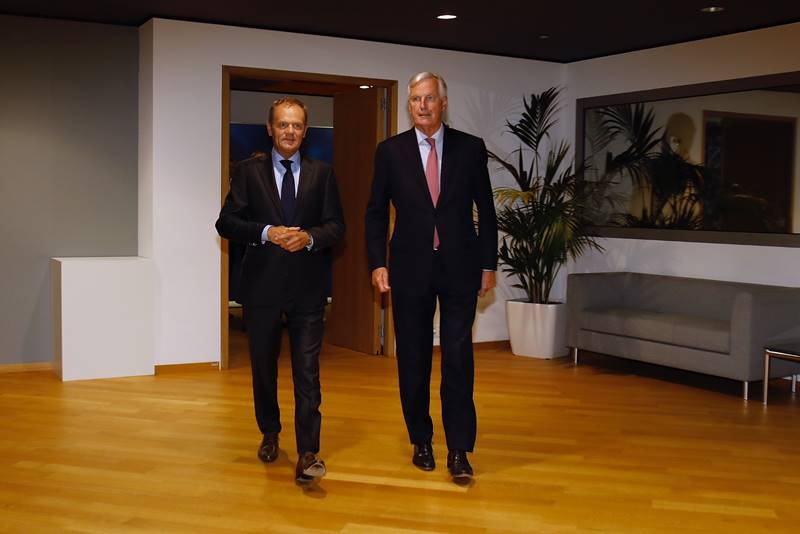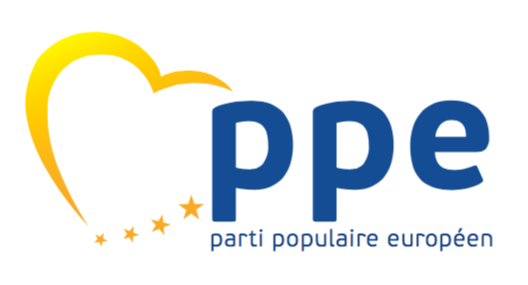Europe in the grip of an economic Waterloo?
(BRUXELLES2) This site rarely gives pride of place to these questions. But once is not custom; the euro crisis and its various developments deserve careful reading.
It is no longer just a purely economic question, but a political and strategic one. Europe faces a major risk: a significant weakening not of one country but of the entire continent.
Europe is in danger
This weakening has an origin, a fuel: repeated attacks from the "markets". But also a formidable accelerator: the lack of foresight, the lack of reaction to the crisis and the strategic errors of the Europeans who have succeeded and piled up for several months. Alongside the strategic defeat that is preparing, the battle of Waterloo could (almost) appear as a victory for the French and that of Austerlitz a victory for the Austrians. -:) If it had been an armed conflict, the European armies would have been crushed. The dead would be counted in the tens and hundreds of thousands; and half of Europe would be "occupied".
In this veritable "economic war", Europe has already lost several battles and several divisions. We can even say that for the four years that the crisis has lasted, all its lines of defense have been, if not broken, at least seriously broken in, circumvented, barely built, forcing another line of defense to be put back in place. One has the impression that the Europeans are still struggling to repair the plaster of their Maginot line while the enemies cheerfully cross the border from the other sides.
Improvidence
What haven't we actually heard to clear ourselves of any action? The first line of defense was: Europe is not concerned with what is happening in the United States (the crisis of subprime). It does not have the same economic and risk-taking structure. A line that was subsequently modified: emphasizing how little European banks were exposed to the same risks. When the crisis began to reach the European continent, and its banks, starting with the United Kingdom, it was considered to be limited to a few poorly managed establishments. And it was the proximity of the British and American banks, their interpenetration which involved their crisis. Idem when the crisis affected Ireland (proximity to the United Kingdom, the United States, etc.).
When the crisis hit Greece... it was the falsification of figures, the poor management of the country, of the economy that were put forward. The crisis was only temporary, it was said. And by 2010 and 2011, economic growth would take over. An expert from Bercy (whose name I will withhold for charity), whom I had questioned, had made me understand how sure they were of the recovery and that the few doubts that could be expressed reflected a certain pessimism and notions of 'economy that were not'up to date"...
When the crisis began to spread to Spain, to Portugal, it was also learnedly explained that, for Italy, there was no risk because the debt was not exposed on the world market and was largely held by the Italians themselves, etc.
incompetence
European leaders have not only piled mistakes on top of each other. Not having fully grasped or wanted to make the seriousness of the crisis understood, they have poorly prepared their populations to accept more drastic measures which will revolutionize their behaviour. This, in all countries. Setting up a robust and efficient tax administration in a country that does not have one (Greece) cannot be done in a few weeks. The establishment of more powerful solidarity mechanisms, and the reversal of a constitutional and cultural constant - the non-intervention of the European authorities and the functioning of the printing press (Germany) - cannot be done in a single speech. The acceptance of a more federal mode of governance, and not based on political blows. Etc. All this requires a little time, explanations that did not come. In all the measures taken, we have taken little or no account of a factor, however essential, the population, and its avatar, democracy.
Mistakes in spades
European leaders have multiplied short-sighted summits, advancing measure by measure, which did not even have time to be put in place when they were already over. It took several months to set up a European financial stability fund which was not sufficiently endowed when the crisis had already affected several countries; several years to lead to a timid supervision of rating agencies (and it is still not in force) to a semi-ban on speculative systems such as short purchases or CDS. Even today, leaders are reluctant to take fairly drastic measures. The European Central Bank remains prohibited from lending to States. Rating agencies, left in the open, are not sanctioned when they make serious mistakes. The implementation of eurobonds has not yet been launched. And we are pushing back the establishment of slightly more restrictive mechanisms such as the tax on financial transactions or the ban on rating the sovereign debt of States receiving aid. The richest countries - and populations - believe they are protected from the dangers that threaten the weakest countries and are always reluctant to make an effort. Etc.
The change of gear
The summoning of repeat summits and small short-sighted changes seem to be dead. After Belgium, degraded, it should be the turn of the hard core: the Netherlands, then France and Germany. Policy forecasting should take this assumption into account and develop instruments accordingly. The institutional mechanism must be adapted to the crisis. This does not require any institutional change. We can think that a continuous meeting of the European leaders, until finding a complete agreement which does not envisage a solution for the crisis which precedes but for the following ones. By planning for the worst.
An underestimated democratic dimension
The democratic and explanatory dimension should not be left aside as it is today. This meeting should be followed, or interrupted, by the emergency meeting of the various parliaments in the countries concerned as well as of the European Parliament to allow discussion to begin on the national modifications necessary for the transposition of these measures. The model, developed by Angela Merkel with a meeting of the Bundestag between two meetings of the European Council (in October), should not be criticized but developed and improved. We will lose a few days or a few weeks which will then be regained. Certain measures will undoubtedly have to be reworked. But that is the price of democracy. And efficiency. What is the point of deciding quickly if the measures then take 1 to 3 years to be applied.
Sort topics
Topics should also be sorted according to their priority. Europeans should also focus on stricter regulation of the financial system, supervision of rating agencies which is still loose today. It is quite astonishing that the "error" of notation of Standard and Poor's vis-à-vis France has given rise to so much leniency. New resources based on new excise duties - which are not that of labor - should be found. Finally, the system of repeated austerity plans also seems condemnable, if not condemned, to me. By dint of tightening the screw, we tighten growth, and we increase the debt. We are about to put around several European countries the knot that we sank around Greece. Result: instead of a debt of a few tens of billions, the amount is now estimated in hundreds of billions.
Beware of the crisis of confidence
Today, the time is no longer for procrastination. Europe is in danger! But first of herself. If European leaders do not react with more verve, intelligence and know-how, explanations and understanding, the crisis will continue to occupy us for many years. The weakening will not then be temporary but could be prolonged. The continent will be at the mercy of the first comer, the first authoritarian or extremist regime born of the crisis. Because it will be coupled with a crisis of confidence, a schism between a part of the population, notable, majority, which will no longer understand the European project and its leaders. To the economic crisis would then be added a political crisis.
(Nicolas Gros-Verheyde)


Good article, which corresponds well to the subject of “geopolitics”, since it is Germany that is trying to win the day. I'm afraid Belrin is unwilling to compromise a lot, as I explained on my own blog. http://lostineurope.posterous.com/der-deutsche-moment (in German)